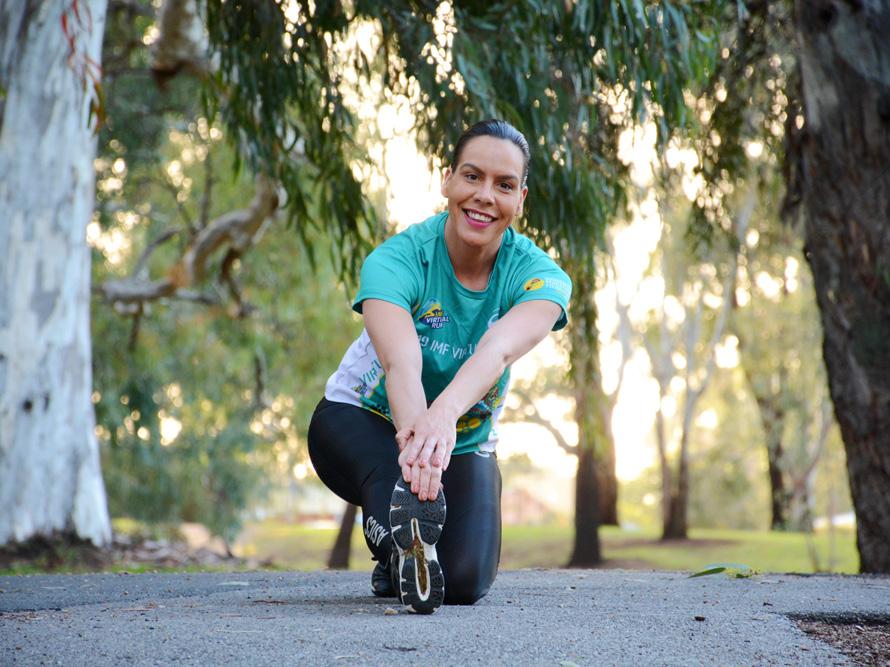
4 minute read
Marathon project changes lives
WORDS Erica Visser
When Salisbury-raised Tahnee Sutton started training to run a marathon, she considered completing a 5km run to be a feat.
Advertisement
Just six months later the Salisbury-raised Narungga woman was passing through the finish line of the world’s biggest marathon in New York City alongside 11 fellow indigenous young people from across Australia.
This is the primary goal of the Indigenous Marathon Project (IMP) – a novel initiative created by world marathon champion Rob De Castella in 2009 which has since seen 109 graduates. The program uses running as an outlet to change lives and provide a sense of “empowerment, purpose and pride” for young people and includes educational components that enable past participants to become “healthy lifestyle leaders” upon their return to communities.
It’s been five years since Tahnee completed the marathon however the experience has had an ongoing life-changing impact – one she continues to share within public speaking appearances such as at the Reconciliation in the North Morning Tea event hosted by City of Salisbury and City of Tea Tree Gully earlier this year.
For Tahnee, who was raised in Salisbury Downs by her grandparents after the death of her parents, the experience has instilled the confidence to pursue opportunities.
For example, pursuing a career as a
Procurement and Policy Officer for the State Government as well as previously working as an Officer Manager.
Prior to that, she completed a traineeship at the City of
Salisbury after graduating from Year 12 at Salisbury High
School.
An ongoing love of running fostered via IMP has also been beneficial for mental health, Tahnee said, allowing her to overcome adversity such as the trauma which came as a result of being on an
Adelaide Metro bus which collided with the Ghan passenger train in 2002, killing five people and injuring 13 others.
“Running has helped me to find peace which I’m really thankful for,” Tahnee said.
“Through running, I have been able to develop a level of resilience which has opened up a lot of other opportunities such as taking on a role of Officer Manager when I didn’t have any prior experience managing people, and excelling within that role.”
It is a far cry from 2016, when Tahnee made her way to Canberra for the first meeting of IMP squad members post selection into the competitive program.
“We were taking turns saying a bit about ourselves and I felt so overwhelmed I got up and left the room,” she said.
“The head coach followed me and said, ‘Don’t worry, your voice will come with time.’
“Here I am nearly five years on, a true testament to the success of the marathon project.”
Tahnee is now focused on working with young people to empower them to adopt healthier lifestyles and in turn improve physical and mental health.
She is also passionate about shedding light on subjects that Tahnee says aren’t spoken about enough both within indigenous and non-indigenous communities, such as the existence and deeply-rooted impact of intergenerational trauma on Aboriginal people.
Tahnee Sutton.
Meanwhile, Tahnee remains committed to supporting the IMP, attending last year’s COVID-adapted version of the grand event held at Alice Springs to support 12 squad members reach the finish line.
The runners kicked off the 42.195km trek at midnight, guided by a backdrop of the full moon against the red desert that is intrinsically linked with Aboriginal cultural history.
Tahnee recommended the program to any young indigenous person who was thinking about applying.
“Running a marathon teaches you the formula to life – that yes you are going to have the highs and lows and want to give up, but as you continue to push forward you will eventually reach your destination in whatever that may be,” she said.
Who can apply to take part in the Indigenous Marathon Project?
Every year, up to twelve Aboriginal and Torres Strait Islander men and women aged 18-30 are selected to train for and complete a major international marathon. Participants are supported with expert coaching advice to ensure they are prepared to complete a marathon. They also receive training and support to develop leadership capabilities to enable them to drive change in their home communities once they complete the program.
What are the biggest benefits participants can expect to take away from having completed the program?
The Indigenous Marathon Project has created significant value for graduates, their families, members of their home communities and the broader community. For graduates, participation in IMP results in a health transformation and mindset shift that sets them up to overhaul their physical health, improve mental health through resilience and positive coping strategies, develop self-belief, set and achieve major goals, and become leaders, both during the program and for many years afterwards. Graduates see benefits flow down to most parts of their lives – leadership opportunities, community and peer network, career development and family functioning.
More information: www.imf.org.au










